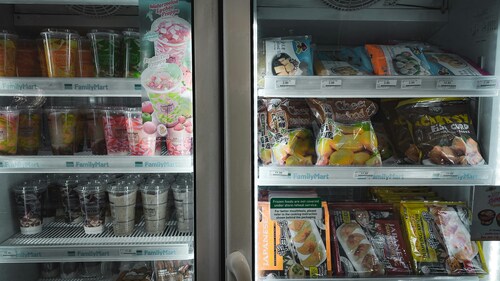Starting a new deli shop is an exciting venture, but it comes with its fair share of planning and preparation. One key aspect to focus on is the equipment that will form the backbone of your day-to-day operations. From slicing fresh meats to displaying your delectable sandwiches, the choices you make now will define the efficiency and quality of your service. Below, we delve into the core pieces of equipment you should consider to ensure your deli shop runs smoothly. Keep reading to discover the essentials for a successful deli startup.
Selecting the Right Commercial Refrigeration
Choosing the right commercial refrigeration is crucial for any deli shop because it ensures the freshness and safety of your perishable ingredients. You’ll want to look for units that offer ample storage and steady temperatures. Factors such as size, energy efficiency, and maintenance requirements should weigh heavily in your decision-making process.
Reach-in refrigerators and freezers provide easy access to frequently used items, which is vital during busy service hours. Additionally, consider the layout of your space, as some models come in varying dimensions to fit compact areas while still offering significant storage capacity. The type of refrigeration you select can have a significant impact on food waste and energy costs, so choose wisely.
One particular type of refrigeration to consider is the sandwich prep table, which combines cold storage with a convenient work surface for assembling sandwiches and salads. These units are designed to keep your most-used ingredients well-organized and at your fingertips, speeding up service and ensuring consistency in your dish preparation.
The Importance of a High-Quality Deli Display Case
The display case in a deli is more than just storage; it’s your front-line salesman. A great display case showcases your products in the most appealing way, enticing customers and increasing impulse buys. Refrigerated display cases ensure that your carefully prepared salads, meats, and cheeses stay at the ideal temperature while waiting to be purchased.
When selecting a deli display case, consider the design that best fits your aesthetic and functional needs. Some come with curved glass for a modern look and easy viewing, while others have straight glass that may fit better in tighter spaces. Lighting is another crucial feature, as proper illumination can make your products look even more appetizing.
Interior layout is a matter of practicality, as well. Adjustable shelves provide flexibility for different product sizes, and easily removable parts facilitate a thorough cleaning process. Bear in mind that a display case also needs to align with health regulations, maintaining food safety and hygiene standards.
Investing in Efficient Cooking Appliances
While delis are known for their cold cuts and sandwiches, many also offer hot soups, melts, and other warm dishes that require reliable cooking appliances. Quality equipment should be a priority since it influences the taste, texture, and temperature of your offerings. It’s beneficial to evaluate the menu to determine what kind of appliances you’ll need, such as grills, stoves, or soup kettles.
Size and capacity are key considerations when selecting these appliances. You want to avoid bottlenecks during peak hours, so choose units that align with your expected customer volume. Also, modularity can be beneficial, allowing for units to be added or rearranged as needed.
Energy source is another aspect to ponder—electric and gas appliances each come with their own set of pros and cons related to cost, efficiency, and even the type of cooking you’re planning to do. Depending on availability and utility costs, one may be more favorable for your particular setup. Also, bear in mind that in order to take care of your new appiances and avoid damages, it is important to find commercial and residential electrical services who can provide preventive maintenance to your shop’s electric system.
Must-Have Utensils and Accessories for Deli Operations
In addition to the larger equipment pieces, a well-stocked array of utensils and accessories is pivotal for the operations of a deli. From tongs and spatulas for safe handling to portion scoops for consistent serving sizes, these tools may be small, but they play a significant role in service speed and food safety.
Consider the materials of the utensils you are choosing. Stainless steel is a popular choice for its durability and ease of sanitation. Moreover, investing in heat-resistant and non-stick-friendly utensils will help extend the longevity of your other kitchenware, such as pans and griddles.
Altogether, the right combination of equipment, utensils, and accessories will set your deli shop up for success. Investing in quality items from the start will save time and money in the long run and ensure your customers enjoy the best possible experience at your establishment. Overall, careful selection and maintenance of your deli’s equipment are key ingredients to thriving in the food service industry.
